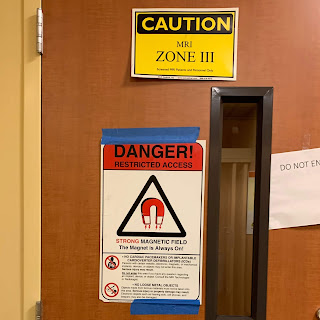Family relationships are hard. I look back at decades of immediate and extended family holiday gatherings, and I notice what has changed and what seems like a given. Long-held disconnects or resentments lie beneath the surface and feel ready to erupt at any moment.
Consider as mere mortals, it’s rare to be perfect in these moments. I’ve left family gatherings spending huge amounts of time thinking about what was said, what wasn’t said, and what pushed my buttons. I’ve lectured myself about what I should have done differently and how I shouldn’t let people’s comments or opinions anger me. I’ve been relieved when it’s over and I won’t need to deal with it again until the next holiday.
Dropping it until the next time I see them again prevents me from having a different experience next time.
When I worked in a woodshop and made mistakes, I’d default to reminding myself: “Being good at a craft isn’t about doing everything perfectly; it’s about knowing how to fix mistakes.”
I’ve taken to applying this concept to relationships. While I wouldn’t call an interaction a mistake, I will acknowledge plenty of times where I wish I’d reacted differently in a situation. Instead of a mistake, I’ll call it letting my frustrations show. While those moments are uncomfortable and possibly embarrassing, they’re consistently opportunities to open a dialogue and nurture relationships.
When asked how a recent holiday gathering went, I joked that no one killed each other and we all still love each other. While tears were shed and shocking comments were made, I was blown away that in each moment someone acted with grace and stayed in the conversation. It’s that grace that heartened me and inspired me to follow up with people after the event. Some were earnest conversations while others where quick comments during a hug. “I’m proud of you.” “Thank you for being kind when that was said to you.” “I love you.”
While I’m tempted to write a note instead of talking to them, I see a huge benefit to saying these things instead of sending a one-way written note. Saying it to them gives them the chance to respond without a lot of extra effort. It invites more reflection and conversation without demanding it.
I can acknowledge what hurts while knowing with certainty that we’re all doing our best in each moment. I don’t need to behave perfectly, and neither does anyone else. If someone shows frustration and behaves poorly, I can listen and know they must need to say it. I can lead with grace by letting them say all they need to say and showing compassion for their pain. Whether I agree or not isn’t the point. I’m choosing to keep this relationship, and helping people have their cathartic moments has helped us move on from some of those past hurts.
Yes, I joked that we didn’t kill each other the last time we were together. Yet I am extremely proud of how far we’ve all come in how we interact. We spend more time listening and showing compassion for each other. We’re having the hard conversations that need to happen if we want to nurture our relationships. We’ve been through a lot individually and collectively, and I’m grateful we keep coming back.
Being good at relationships isn’t about being perfect. It’s about nurturing them with sincerity and kindness when they’re not as good as we’d like them to be and when they’re already great.







